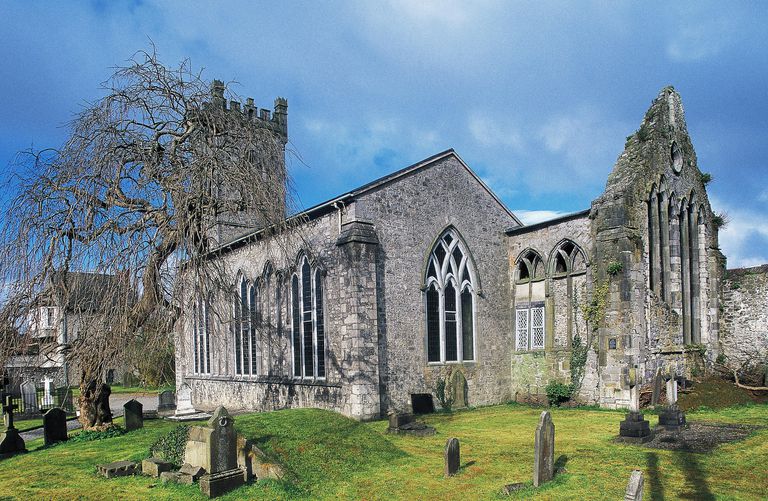
 Irish Catholic parish registers are considered to be the single most important source of information on Irish family history prior to the 1901 census. Consisting primarily of baptismal and marriage records, Irish Catholic church records span over 200 years of Ireland’s history. They contain over 40 million names from over 1,000 parishes across all 32 counties of Ireland and Northern Ireland. In many cases, Catholic parish registers contain the only surviving record of some individuals and families.
Irish Catholic parish registers are considered to be the single most important source of information on Irish family history prior to the 1901 census. Consisting primarily of baptismal and marriage records, Irish Catholic church records span over 200 years of Ireland’s history. They contain over 40 million names from over 1,000 parishes across all 32 counties of Ireland and Northern Ireland. In many cases, Catholic parish registers contain the only surviving record of some individuals and families.
Irish Catholic Parish Registers: What’s Available
The National Library of Ireland holds some information for 1,142 Catholic parishes across Ireland and Northern Ireland and has microfilmed and digitized church records for 1,086 of these parishes. Registers in some city parishes in Cork, Dublin, Galway, Limerick, and Waterford begin as early as the 1740s, while in other counties such as Kildare, Kilkenny, Waterford, and Wexford, they date from the 1780/90s. Registers for parishes along Ireland’s western seaboard, in counties such as Leitrim, Mayo, Roscommon, and Sligo, do not generally date prior to the 1850s. Due to hostilities between the Church of Ireland (the official church in Ireland from 1537 to 1870) and the Roman Catholic Church, few registers were recorded or survive prior to the mid-eighteenth century. The majority of the records available online are baptismal and marriage records and date prior to 1880. Over half of Irish parishes did not record burials prior to 1900 so burials are less commonly found in the early Catholic parish registers.
How to Access Irish Catholic Parish Registers Online for Free
The National Library of Ireland has digitized their entire collection of Irish Catholic parish registers dating from 1671-1880 and made the digitized images available online for free. The collection includes 3500 registers converted to approximately 373,000 digital images. The images on the National Library of Ireland website have not been indexed or transcribed so it is not possible to search by name in this collection, although a free searchable index is available online at FindMyPast (see below).
To locate digitized church records for a particular parish, either enter the name of the parish in the search box or use their handy map to locate the correct parish. Click anywhere on the map to show the Catholic parishes in a particular area. Selecting a parish name will return an information page for that parish. If you know the name of the town or village where your Irish ancestors lived, but do not know the name of the parish, you can use the free tools at SWilson.info to locate the name of the correct Catholic parish. If you only know the county where your ancestor was from, then Griffith’s valuation may be able to help you narrow down the surname to certain parishes.
Search for a Name in Irish Catholic Parish Registers
In March 2016, subscription-based website FindMyPast launched a free searchable index of over 10 million names from the Irish Catholic parish registers. Access to the free index does require registration, but you do not have to have a paid subscription to view search results. Once you’ve found an individual of interest in the index, click on the transcription-image (looks like a document) to view additional info, as well as a link to the digital image on the National Library of Ireland website. If you want to only search the free Catholic parish registers, browse directly to each individual database: Ireland Roman Catholic Parish Baptisms, Ireland Roman Catholic Parish Burials, and Ireland Roman Catholic Parish Marriages.
Subscription website Ancestry.com also has a searchable index to the Irish Catholic Parish Registers.
What Else Can I Find?
Once you have found your Irish family’s parish and the associated baptism, marriage and death records, it is time to see what else you can find. However, many Irish records are categorized by Civil Registration District, not a parish. To find these records, you will need to cross-reference your family’s parish with their Civil Registration District. There are usually several of these within a particular county.
